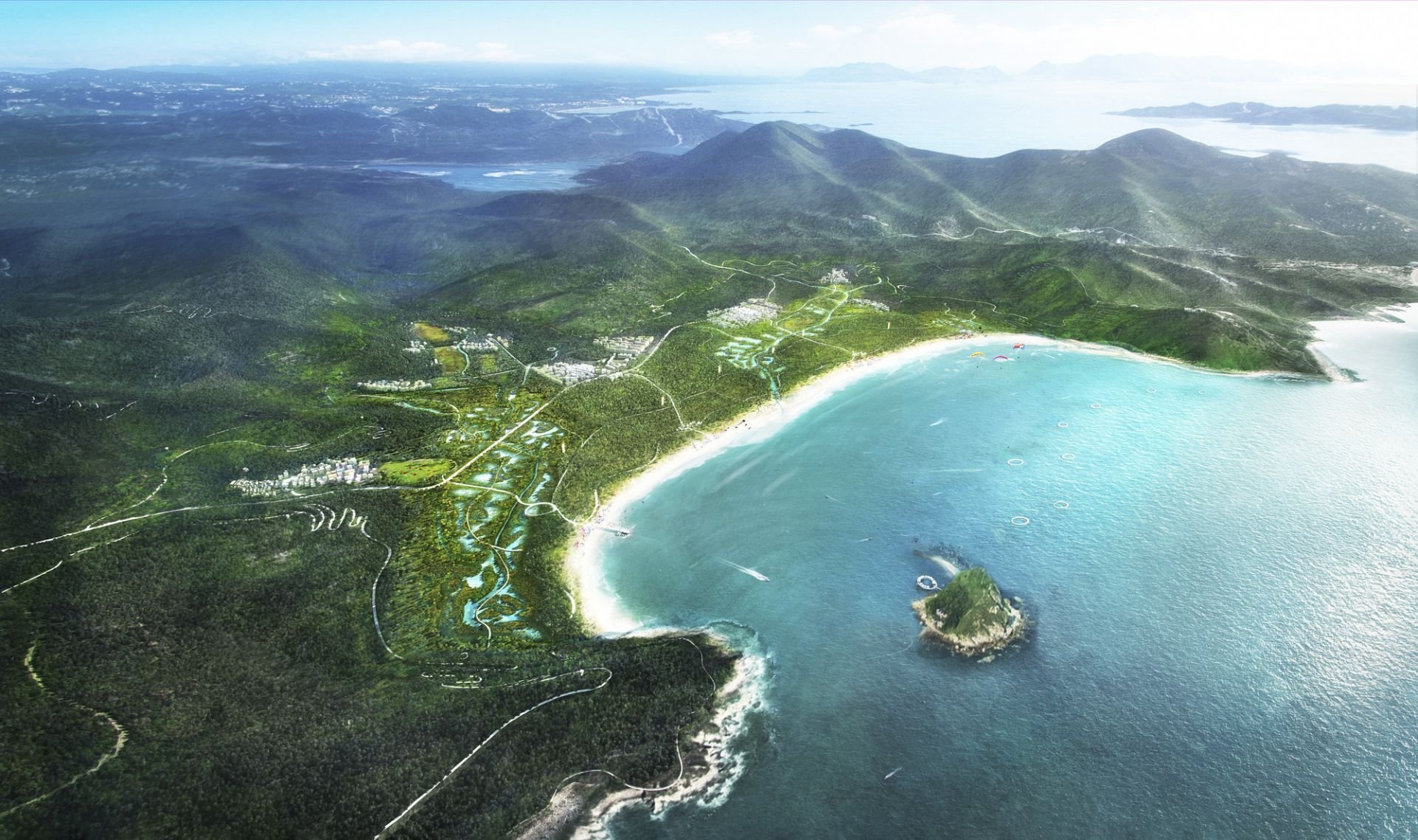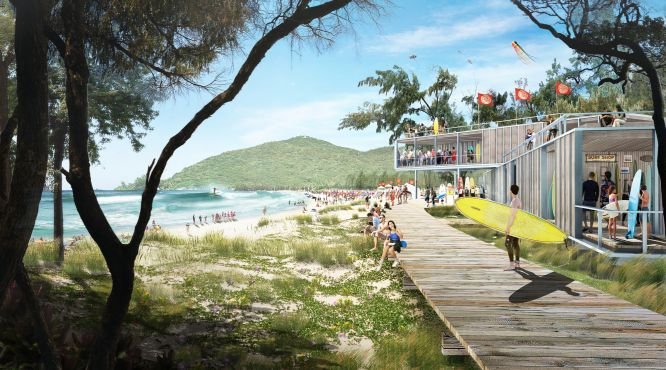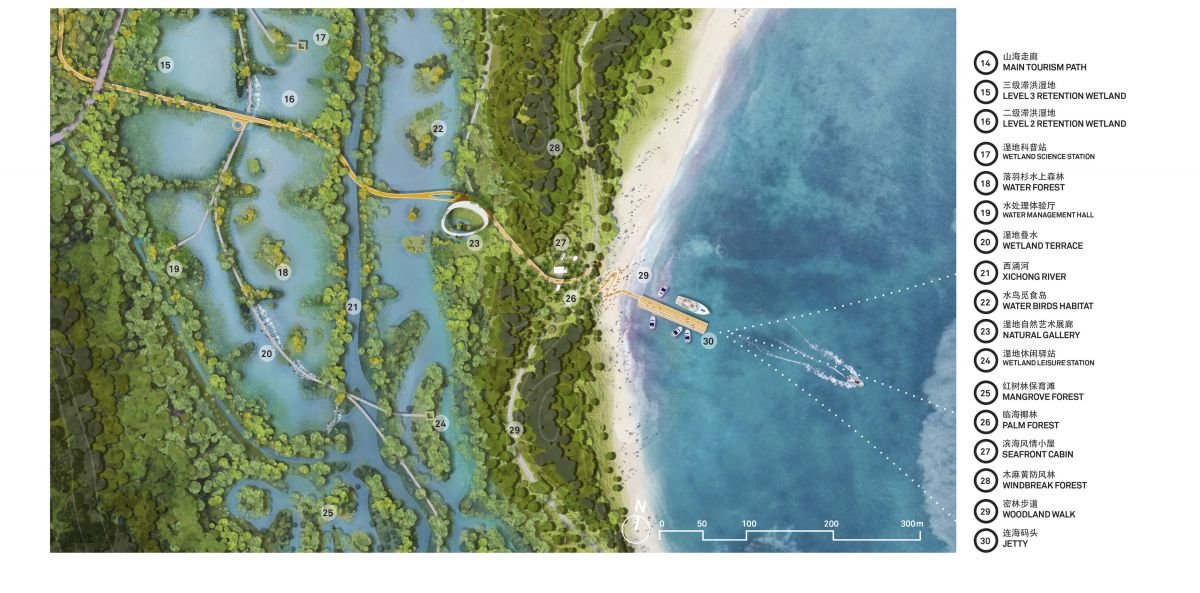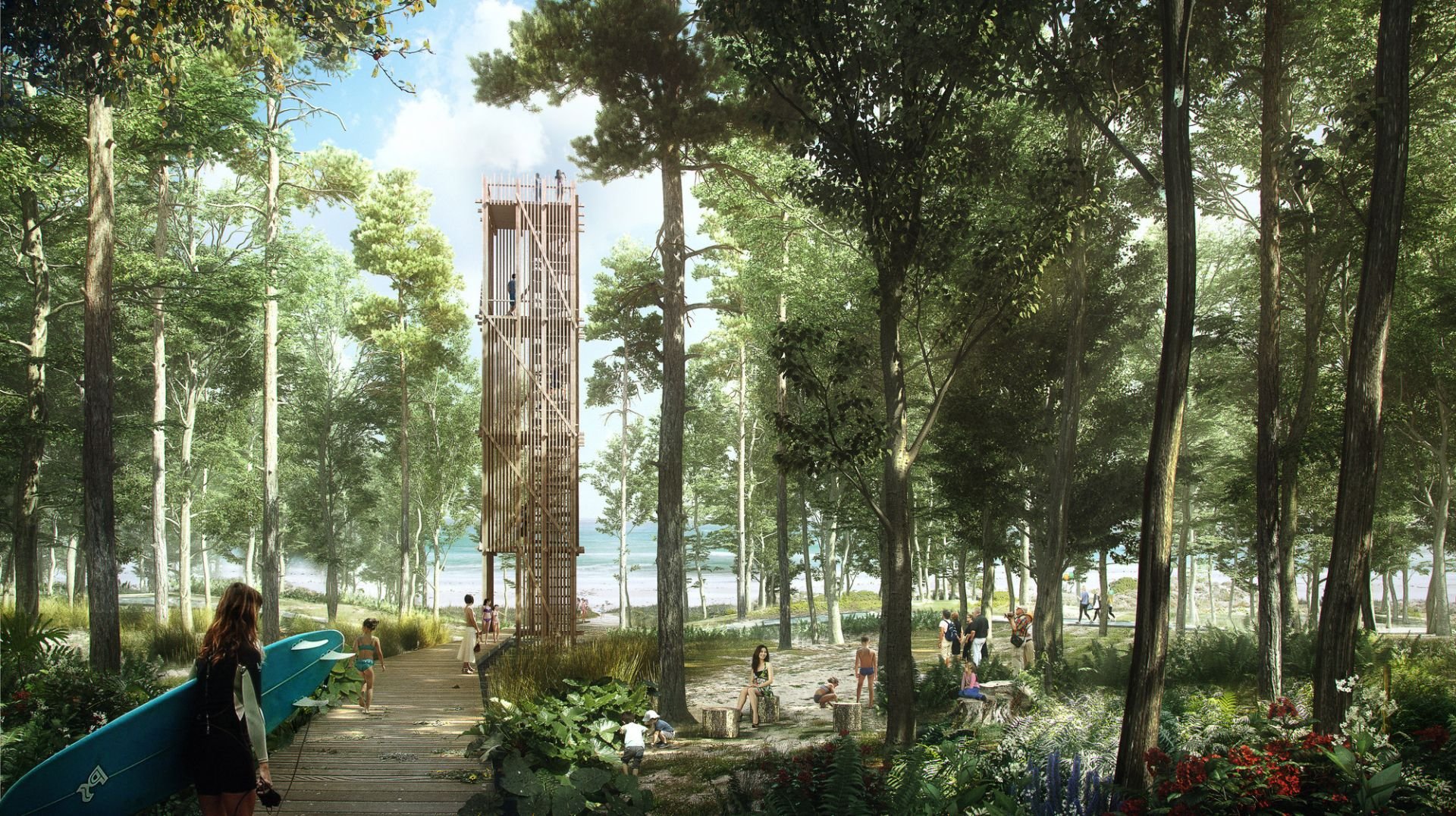Awards for Xichong Coast Recovery Plan
Hassell’s Xichong Coast Recovery Plan for Shenzhen, restoring the wetlands and mangrove forests, and building tourism and education in the area, won both a Australian Institute of Landscape Architects National award and a IFLA APR Outstanding Award for Unbuilt Projects.
The 18 square-kilometre plan was completed in 2019 for the Dapeng New Area Committee of Shenzhen Planning and Natural Resources Bureau. Typhoon Mangkhut had destroyed vast areas of coastal landscape, but “out of that adversity came an opportunity- for a new beginning and a more sustainable future.”
Hassell’s Xichong Coast Recovery Plan for Shenzhen is a multi award winning design.
Hassell recognises that, “Xichong is one of China’s most beautiful coasts, with sandy beaches and a biodiverse tropical landscape. But it’s also part of Shenzhen, the tech megacity whose rapid redevelopment has degraded Xichong’s pristine environment along the South China Sea.”
Hassell’s hybrid approach to infrastructure supports tourism while defending the coastline against typhoons. It limits development and visitor numbers in conservation areas, protecting local habitats and sensitive ecologies.
The Hassell team says while Xichong is one of China’s most beautiful coasts it is also part of Shenzhen, the tech megacity.
Local communities play a role in Hassell’s vision- they will plan and operate the ecotourism sector while protecting and managing the environment. “Under our community-driven model for the precinct, we create a perfect combination focusing on conservation and disaster resilience while also offering a unique local experience,” say the designers.
Sustainable, community-driven ecotourism developments will be placed inland around existing villages, and away from environmentally-sensitive areas.
Habitats and ecosystems include mountain forest, village woodland, wetland, coast and forest shelter.
The rapid development in the area has degraded Xichong’s pristine environment along the South China Sea.
The long-term resilience strategy actively restores the area and mitigates disasters. It reinforces Xichong’s self-recovery system linking land, beach and sea, “making the area truly ‘resilient by nature’ over time.”
The AILA jury commended the speculative proposal as, “a holistic approach to a coastal tourism region near Shenzhen that is impacted by climate change.” It addresses the environmental, economic, social and cultural aspects of the region, providing, “a long-term, multifaceted and multi-scalar strategy, the project is underpinned by a strong reading of the site’s ecology and an exploration of how new infrastructures and tourist facilities can shape more resilient landscape systems.”
They further praise, “the proposal’s critique of the region’s existing tourist economy and the alternative approach developed, which involves community management of the local industry and the landscapes that support it. Overall, this project demonstrates the thinking that landscape architects can bring to complex landscapes undergoing climate-related change in the coming decades.”



